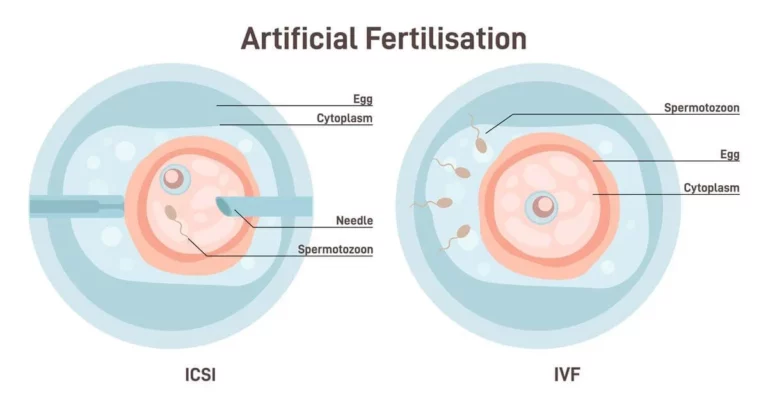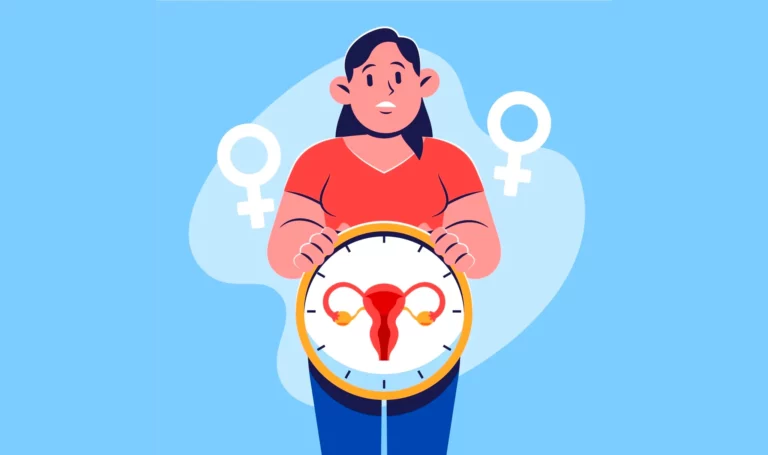When you plan your child, you think of conception as a joyride that will change the course of your life, but there’s a catch here and it is your reproductive health! Any disturbance in your fertility can make getting pregnant tricky. If you got your fertility assessments done and have been diagnosed with low sperm count or oligospermia, take a deep breath and know that it’s a fairly common and reversible medical condition. A lot of men tend to associate their fertility with their masculinity and this diagnosis can affect their sense of self. So, before you think of yourself as a lesser person, you need to understand that factors like everyday lifestyle changes and stress can reduce the quality and number of your sperm. Let’s find out why this happens and what you need to do to increase your sperm count.
What is sperm count?
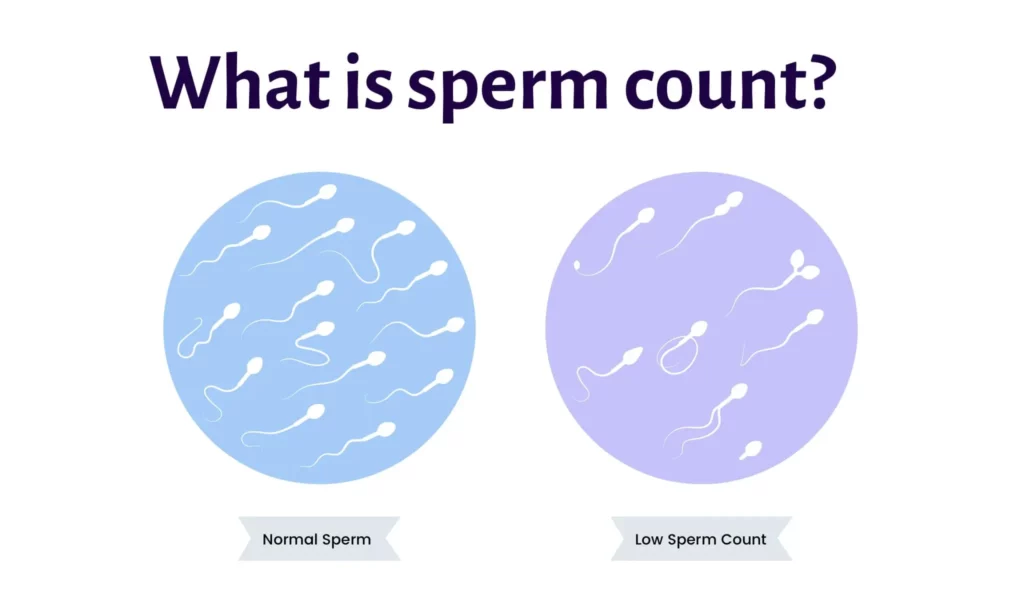
The average number of sperm present in one sample of semen is called sperm count. When you consult a fertility doctor regarding conception, they will advise you to get your fertility assessments done. On an average, the normal sperm count to get pregnant needs to range from 15 to 200 million sperm per millilitre (mL) of semen. If the sperm count is less than 15 million, it is considered to be low and may cause infertility.
How do I check my sperm count?
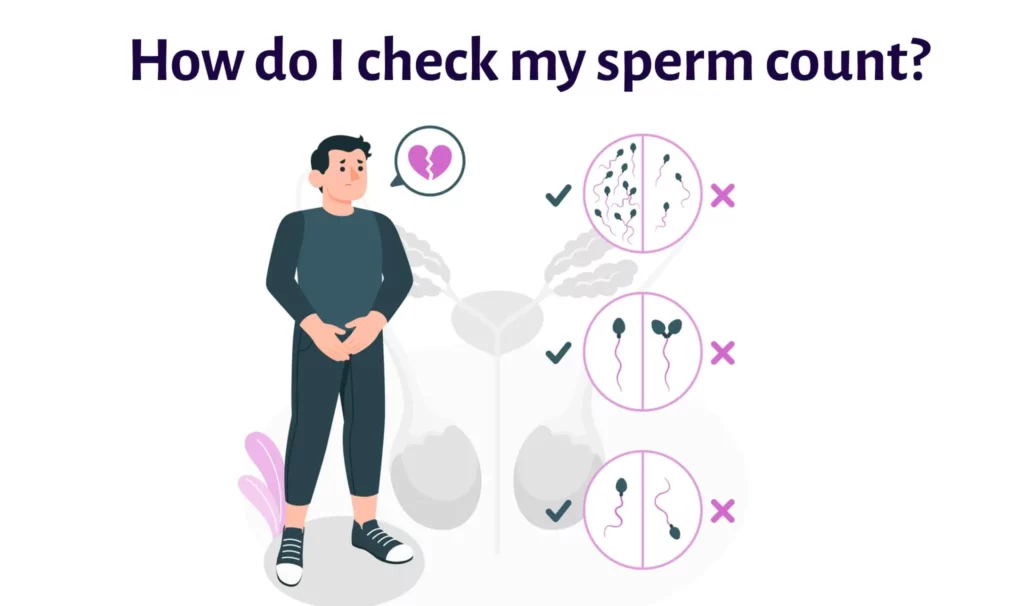
To assess male fertility, a Semen Analysis is done to determine the number, shape, and movement of the sperm. You can either conduct a semen analysis test at home at-home , go to a doctor’s office or a fertility clinic. An at-home test is simple but it only gives you the number of sperms. Therefore, if you are interested in getting a complete analysis done, you should consider visiting a doctor. This analysis is important because it gives you a certain idea of your chances of getting pregnant.
If your sperm count is normal but you are still facing infertility issues, it’s advisable to get a complete analysis done at a fertility clinic. Just like the sperm count, the movement and the structure of the sperm also affect male fertility. The measure of a sperm’s movement is called motility. To be able to reach an egg and fertilize it, the sperm needs to be able to move through the female’s cervical mucus and fallopian tubes. You need to have a motility rate of 25mm per second. Poor motility rate is also called asthenozoospermia and may be caused due to some damage to the testicles.
Similarly, the structure of normal sperm consists of oval heads and long tails, which help them propel and move through the mucus. The more sperm with a normal structure, the more chances are there of you being fertile.
Reasons for a low sperm count

There can be many reasons for low sperm count including genetics, surgeries, poor health, or STDs (sexually transmitted diseases). It is better to know your body and understand what may be causing the problem. Let’s look at all the possible reasons that cause this problem.
- Testosterone Levels: The most common and the most obvious reason for a low sperm count is a fall in testosterone levels. A decrease in testosterone can be caused due to injury or trauma, excessive alcohol use or unhealthy eating habits. Sometimes, low sex drive can also be the reason for decreased testosterone levels.
- Varicocele: Varicocele is a condition in which the varicose veins swell up. Varicose veins are the veins inside the scrotum – the pouch that holds the testicles. This swelling drains the testicle and the sperm movement decreases.
- Sexual Infections and Tumors: Infections like epididymitis or orchitis (inflammation of the epididymis or testicles) can sometimes affect sperm production by causing scarring that blocks sperm passage, leading to a low sperm count. Sexually transmitted diseases like HIV can also cause similar problems. In most cases of infection, the sperm count can be increased through treatment except for a few infections that cause permanent damage to the testicles.
Another reason could be a tumour or cancer that directly affect the male reproductive organs. The treatment methods for tumours such as surgery, radiation or chemotherapy also affect male fertility negatively.
- Hormonal Imbalance: Imbalance in the male hormones are one of the most common reasons for a low sperm count. This may be due to any damage to the glands (hypothalamus and pituitary, thyroid and adrenal gland) and organs (testicles) necessary for sperm production.
- Retrograde Ejaculation: Retrograde ejaculation refers to a condition in which the semen doesn’t emerge out of the tip of the penis, instead it enters the bladder. Therefore, even though you might reach your climax, but you ejaculate very little to no semen. This can be caused due to multiple reasons, including health problems like diabetes, spinal injuries, or past surgeries. This problem can either be temporary or permanent, but if you seek treatment at an early stage, it can be reversed.
- Sperm Travel Problems: Sperms are carried from the testicles to the tip by multiple tubes. These tubes can be easily blocked due to injuries from surgeries, infections, cysts or swellings. The sperm fails to travel to the tip, when these passages are blocked. If you want to boost your sperm count, you might want to get checked for any such blockages
- Surgeries: If you have undergone any surgeries in the past, they might be the reason for your low sperm count. These include vasectomy, inguinal hernia repairs, prostate and testicular surgeries or abdominal surgeries for testicular and rectal cancers. These problems are usually reversible by performing surgery to unblock the passages.
- Chemicals and Medications: Continuous exposure to certain chemicals, including benzenes, toluene, xylene and some organic solvents, paints, lead etc. might reduce sperm count.
Medical treatments and medications like long-term anabolic steroid use, chemotherapy, testosterone replacement therapy, antibiotics, etc. can also affect the sperm count negatively.
- Lifestyle: A lousy lifestyle is a cause of many health issues. These also include reproduction problems. If you don’t maintain a healthy diet or get enough rest, it can highly affect both your sex drive and your fertility.
Besides unhealthy diets, usage of drugs, alcohol, and tobacco can also decrease sperm count. Steroids for muscle growth can result in the shrinking of testicles and reduction in sperm production. Drugs like marijuana and cocaine also degrade the number and quality of sperm. Similarly, excessive alcohol intake can decrease testosterone levels, leading to a low sperm count.
- Stress: Stress, be it in any form – Emotional, physical, can be a major reason for hormonal imbalance, which further leads to fertility problems. Stress may also arise due to infertility but you need to know that it will only affect your fertility negatively. The best measure is to consult a doctor at the earliest. Therefore, it is advisable that at least two-three samples are tested before reaching a conclusion.
- Sperm Testing Issues: Sometimes, the reason for low sperm count can be a mistake in the sperm testing process. For example, testing a semen sample that was collected too soon after an illness, stressful event or ejaculation. Another reason can be that some of the semen got spilt and only the remaining was tested.
Does masturbation reduce sperm count?

No, masturbation does not affect your sperm count. Many people have this misconception that masturbation may reduce their sperm count. However, that’s not the case. In fact, masturbation relieves stress and physical tension and might positively affect your sperm count.
Solutions and Practices to Increase sperm count
Now that you know about the different causes of reduced sperm count, let’s discuss what are some solutions and practices that can help you in this situation.
- Eat a Healthy Diet: Be it for your sperm count or any other health-related issue, it’s always advisable to eat a healthy and balanced diet. Some foods like processed meats, foods with trans fats, soy products, high-fat dairy products, etc, can cause infertility. Some important components that you need to include in your food to increase sperm count are given below.
Foods and supplements to increase sperm count –
- Vitamins: Vitamins C, D and E are important for a good sperm health. A study from the National Library of Medicine shows that intaking 1000 milligrams of Vitamin C on a daily basis can increase sperm concentration and mobility in males. The sperm moves more efficiently and there are more chances of conceiving. Besides, we all are familiar with Vitamin C’s ability to enhance immunity.
These vitamins help you improve your antioxidant defences that may be negatively impacted by the disease, old age, unhealthy lifestyle etc. The human body constantly produces ROS (Reactive Oxygen Species) and if they exceed a certain level, they may cause tissue injuries increasing the risk of chronic diseases. Antioxidants like Vitamin C help in fighting these effects and promote good sperm health.
- Zinc: Some studies suggest that zinc intake, mixed with folate may improve the overall health of the sperm, along with the rise in sperm count.
- Maca Root: According to a study conducted on 9 adult males who received tablets of maca (1500-3000mg) daily for four months. The results showed that the treatment increased seminal volumes, sperm count per ejaculate, motile sperm count and sperm motility.
- Fenugreek Supplements: Fenugreek supplements are used as a natural remedy to improve sperm health and can also enhance sperm count. A study was conducted on 30 men taking 500mg of fenugreek extract every day. These men practiced strength training four times a week. The study concluded that the men had increased testosterone levels compared to a normal male.
- D-aspartic Acid Supplements: D-aspartic acid (D-AA) is a type of amino acid that is used as a dietary supplement. This acid is present in testicles, semen and the sperm cells. Researchers associate high D-AA levels in males with high fertility. Studies show that D-AA supplements increase testosterone levels in males.
- Antioxidant rich food: Researchers associate higher antioxidant consumption with increased sperm count. You can intake several vitamins and minerals that act as antioxidants. Supplements such as CoQ10 and alpha-tocopherol help in increasing sperm count. Other supplements like carnitine help in enhancing sperm quality.
- Get Proper Sleep: Having a good night’s sleep always has a positive impact on health. According to a study from Sandstone, men sleeping for less than six hours a day at night are 31% less likely to get pregnant than those who get a proper seven to eight hours of sleep.
- Exercise: Exercising or physical activity in any form is always good for thee health. It is an important part of a healthy lifestyle and enhances your health and body. Studies show that weightlifting and physical exercises can improve sperm health majorly. If you are a physically active person, that’s great but if not, then try to increase your physical activity slowly and incorporate it into your regular routine. Exercising will also help you maintain a beautiful body and avoid other health problems.
- Quit Smoking: Smoking, in general, is injurious to health in many ways. Reduction in sperm count is also one of them. A report from ScienceDirect shows that smoking consistently reduces sperm count. Not just the sperm count, but the quality of sperm also gets affected negatively and reduces the chances of pregnancy.
- Reduce Alcohol Intake: Just like smoking, alcohol and drugs impact your reproductive health negatively. Although limited alcohol consumption is common, drinking with no limits can cause some serious damage to your health. Studies have found that men drinking 40 units per week had 33% lower sperm count and the quality of sperm was also decreased by 49%. Try to cut down your alcohol consumption if you want to increase your sperm count.
- Reduce Stress: Stress not only reduces your libido, but it might also postpone your orgasm or reduce your sexual satisfaction completely and impact your fertility. Researchers say that prolonged stress increases cortisol in the body, which negatively impacts testosterone levels. Try to relax and practice yoga and meditation. If it still doesn’t get better, try seeing a therapist. In any case, do not take your anxiety lightly because it can majorly impact your health.
- Take Ashwagandha: Ashwagandha (also known as withania somnifera or Indian Ginseng) is an annual evergreen shrub that grows in India. It has been used in traditional medicines from time to time as a remedy for sexual dysfuctions. Studies show that ashwagandha improves male fertility by boosting testosterone levels.
- Tribulus Terrestris: Tribulus terrestris (puncture vine) is a medicinal herb used to increase male fertility. It increases a person’s libido. It also enhances sperm motility, increasing chances of pregnancy.
- Wear Loose, Cotton Clothes: High temperatures can negatively impact your sperm count. Therefore, it’s important to keep your sperm at an adequate temperature and maintain proper air flow to the scrotum. This will create the right environment for a healthy sperm. Wear loose, cotton clothes to maintain the air flow.
- Avoid Environmental Hazards: Avoid getting exposed to harmful chemicals, lead and heavy metals. Exposure to radiation can also decrease sperm production and it may take several years for it to go back to normal.
Conclusion:
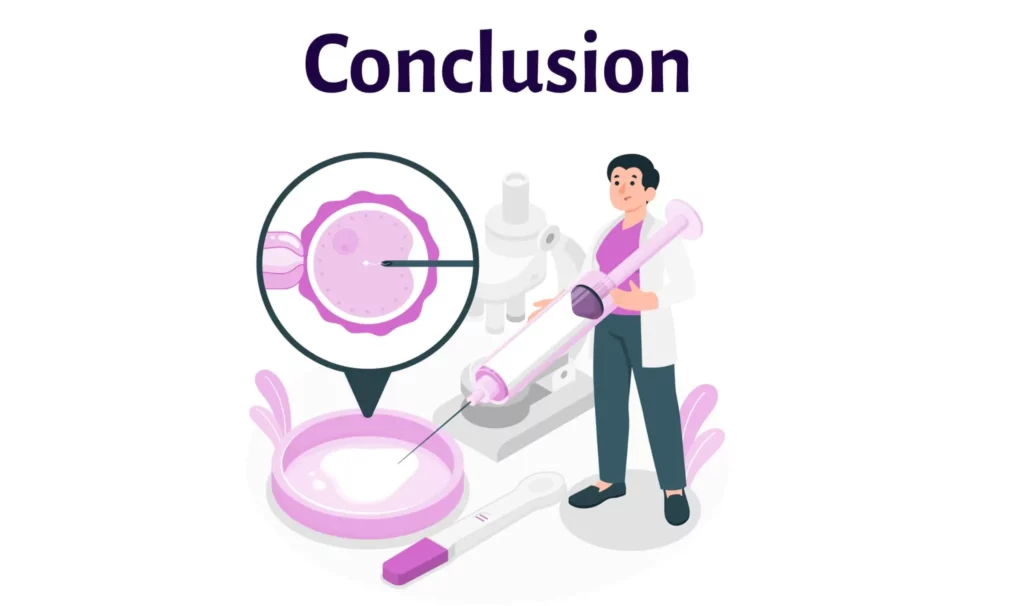
Fertility issues can be very stressful and not knowing it’s cause or treatment can be even more worrisome. We hope this article helped in answering all your questions and knowing a little more about your body. We always advise visiting a fertility clinic for getting a more concise answer to your queries.
In case you have queries that are left unanswered, worry not! Book an appointment at Grace Fertility and let the experts guide you. Feel free to get in touch with us and kiss your worries goodbye!




